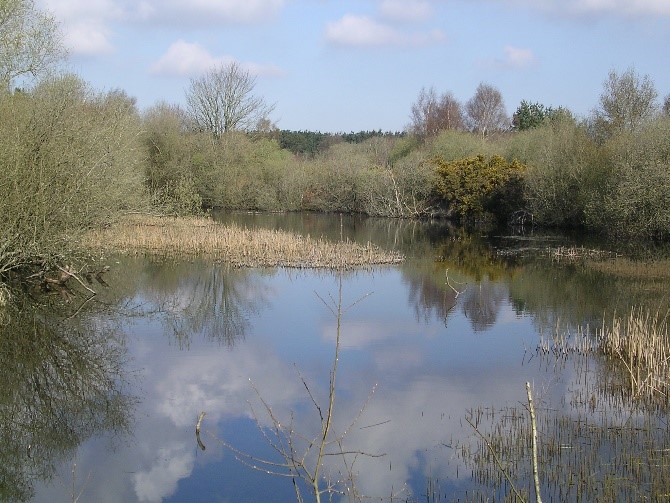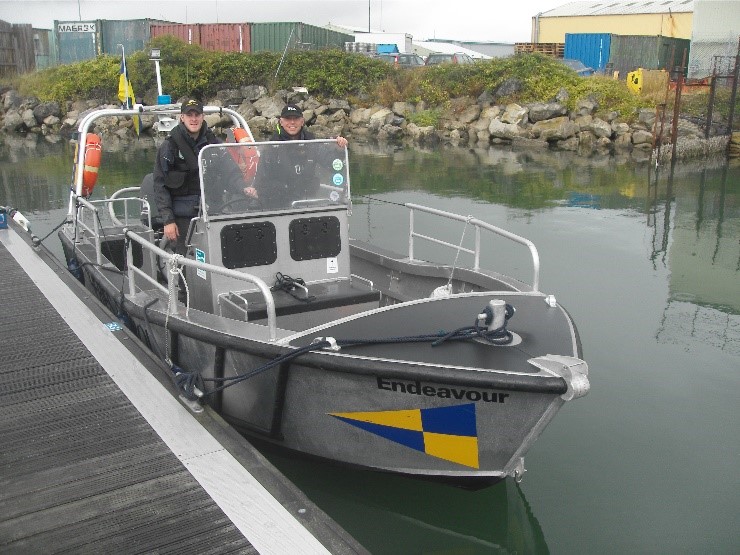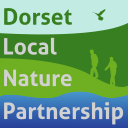Simon Cripps – Chair Dorset Local Nature Partnership
Health & wellbeing
Coronavirus is having an unprecedented effect on everyday life in ways we couldn’t imagine. In times of national emergency when society focuses on immediate necessities, issues like the environment can become a secondary concern. That is however often just the time when we need to ensure a healthy productive natural environment to support us in many ways through its various services.

It is interesting to see environment is perhaps mentioned more often than usual during this outbreak, but you have to look for it. The Prime Minister’s acknowledgement that it is acceptable for people to take exercise outside for the sake of their physical and mental health is recognition of work the LNP has been doing for some time with Public Health Dorset on the health and wellbeing benefits of nature.
To see how this virus is affecting nature and environment I talked (in a social distancing way) to some of Dorset’s key nature and environment professionals in NGOs, authorities and business in the LNP to get some interesting feedback.
Dorset’s special natural places
Firstly, how is the current crisis affecting Dorset’s special places – its nature reserves, parks and open spaces? As expected, there would seem to be less people out and about. With a few notable high profile exceptions it appears that people are keeping local. Reports are that there is a lot less disturbance at many nature sites. This would be expected to be beneficial, especially during the spring bird nesting period. This was found to be the case during the foot & mouth outbreak in 2001 when large tracts of countryside were closed off.

On the down-side there is a concern that without a wardening presence some people have been seen to be acting less responsibly, for example letting dogs off the lead and not picking up dog waste.
Across the board, organisations are not sending wardens out to work on reserves. Luckily for most, the winter work period is over. Wardens and rangers are only attending to urgent tasks such as livestock welfare, water level management and stock fence repairs.
Without habitat management long-term there may well be a rewilding effect which on a landscape scale would be beneficial, such as if farmers cut back on elements of intensive agriculture. But there would likely be a loss of some sensitive species for which habitat management (e.g. on heaths) is a necessity. Farmers also play an important part in maintaining nature and so if they are forced to concentrate on food production and not nature restoration, we may well see a decline in the health and productivity of the countryside.
There is a concern that there will be a loss of momentum for important conservation projects such as the reintroduction of beavers, or heathland restoration work, but managers appear relaxed. It seems that major funders such as the Rural Payments Agency (not known for its flexibility) and the National Lottery Heritage Fund are prepared to be flexible on stewardship grant renewals and project deadlines respectively.
Whilst it isn’t always possible to close off natural sites except in some specific cases as the National Trust have done, car parks and some gates can be closed where there is not a right of way, so limiting access. Overall then this crisis looks to be at worst not damaging to wildlife and at best to have some benefits primarily through reduced disturbance. If it were to continue for years rather than months, we might see landscape scale rewilding improvements but losses for some habitat-dependent species.
It is worth noting that national parks were set up as a settlement after WW2 to help restore the health and morale of the public as a ‘Natural Health Service’. It may be that this crisis, in showing the value of nature for health and wellbeing, may lead to the creation of more such areas with a range of designations and aims. This could better prepare society for future crises and help us to reduce the chance of them reoccurring.
Dorset’s coast
At sea the situation as usual is less easy to assess. Fishing as a protected industry providing much needed food during a crisis will likely continue. As crew succumb to the virus it is possible that the pressure of fishing will decline but presumably only in the short term. It is only speculative, but I would expect that a reduction in fishing now in the early breeding season of many commercial species may result in more juveniles recruiting into the fishery. These will be caught eventually when they reach a minimum catch size so I doubt the marine ecosystem will benefit greatly, but catches may increase over the medium term.

Fishing authorities such as the Southern IFCA were anyway working at full stretch to put in place bylaws to protect stocks, the environment and fishing livelihoods. This work will be held up because face-to-face meetings cannot be held, as required by legislation protocols. This places MPAs, species and stocks at risk in the short-term. If enforcement officers can’t get out to sea then there is a concern that illegal fishing may increase with the loss of undersize fish and shellfish and damage to sensitive habitats such as seagrass, and the sea fans in Lyme Bay.
Sustainability
In terms of sustainability this is an unprecedented opportunity to try living a different way with hugely reduced travel, remote working and a simpler lifestyle. Many of us, individuals and corporations, are now having to learn about working from home – both the technologies that allow us to keep in touch with our physically remote colleagues and the different disciplines that are needed to work in this way. It will be interesting to see if that learning carries over into a post virus world as reduced commuting or if we just drift back to our previous ways. Improvements in air and water quality in some of the most impacted parts of the world are not a call to decimate our industrial capacity but might perhaps be seen as a vision of the prize available if we just learn to do industry differently. Additionally, in China and elsewhere we must hope that the governments take action to stop the sale and consumption of threatened species like bats and pangolins which probably caused the human coronavirus outbreak in the first place.
It is in times of such crisis that we need to be looking to protect that which sustains us – physically and mentally, but so often it is put to one side until the crisis is over. Overall then the biggest single challenge for our planet and our continued existence as a species is that there are too many of us using too many resources. If we can reduce our activities and outputs whilst still thriving, then our impacts on the physical and natural environment will decline and nature will have a chance to recover. It looks as though in Dorset in the short-term there will be benefits to nature and environment. In the longer term if this continues there many be benefits for climate change and for human behaviour if we learn some lessons from this difficult experience.
Inshore Fisheries and Conservation Authorities (IFCAs) updates for the Inshore Fishing Community
